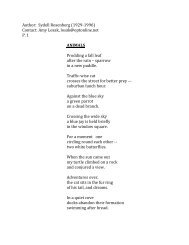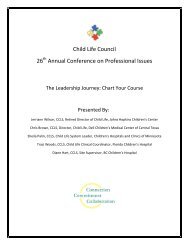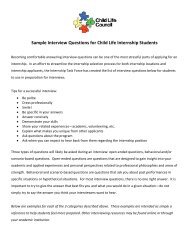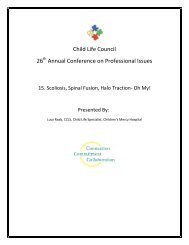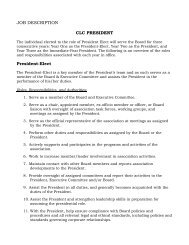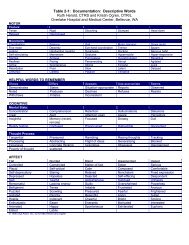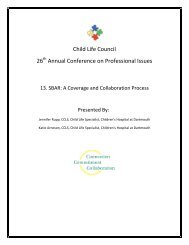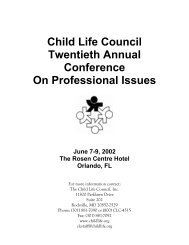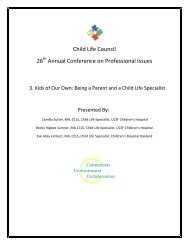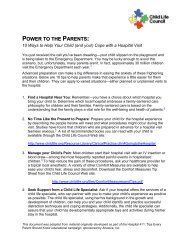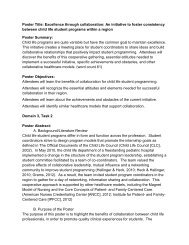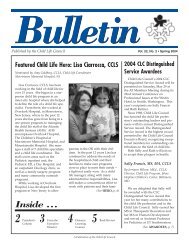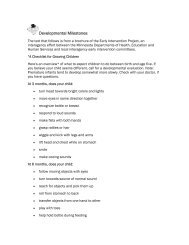Child Life Clinical Internship Curriculum - Child Life Council
Child Life Clinical Internship Curriculum - Child Life Council
Child Life Clinical Internship Curriculum - Child Life Council
Create successful ePaper yourself
Turn your PDF publications into a flip-book with our unique Google optimized e-Paper software.
Module 8<br />
Therapeutic Play and Coping<br />
<strong>Clinical</strong> Learning Goals<br />
The child life intern will develop and successfully apply a working knowledge of how to use<br />
play in a therapeutic manner to support children in coping with a range of psychosocial issues.<br />
<strong>Child</strong> <strong>Life</strong> Competencies<br />
I. Care of Infants, <strong>Child</strong>ren, Youth and Families<br />
A. The ability to assess and meaningfully interact with infants, children, youth and<br />
families.<br />
Utilize therapeutic/creative modalities such as bibliotherapy to meet individual<br />
developmental and emotional needs.<br />
B. The ability to provide a safe, therapeutic and healing environment for infants,<br />
children, youth and families.<br />
Identify and describe the developmental and psychosocial goals of each activity and<br />
interaction.<br />
C. The ability to assist infants, children, youth and families in coping with potentially<br />
stressful events.<br />
Facilitate opportunities for play to decrease distress and increase effective coping<br />
Facilitate mastery of potentially stressful experiences.<br />
II. Education and Supervision<br />
A. The ability to represent and communicate child life practice and psychosocial issues of<br />
infants, children, youth and families to others.<br />
Demonstrate effective advocacy for child life practice and psychosocial issues.<br />
Related Domains and Tasks from Professional Certification Examination Classification<br />
System<br />
Domain II: Intervention<br />
Task 5: Facilitate the development of coping strategies for children and families (e.g.,<br />
pain management, Positioning for Comfort ® , distraction, alternative focus, guided<br />
imagery, child participation) in order to minimize distress and promote empowerment.<br />
Task 6: Facilitate play (e.g., recreational, health care, therapeutic) and familiar life<br />
experiences in order to encourage expression, process information, and promote<br />
development and normalization.<br />
37



